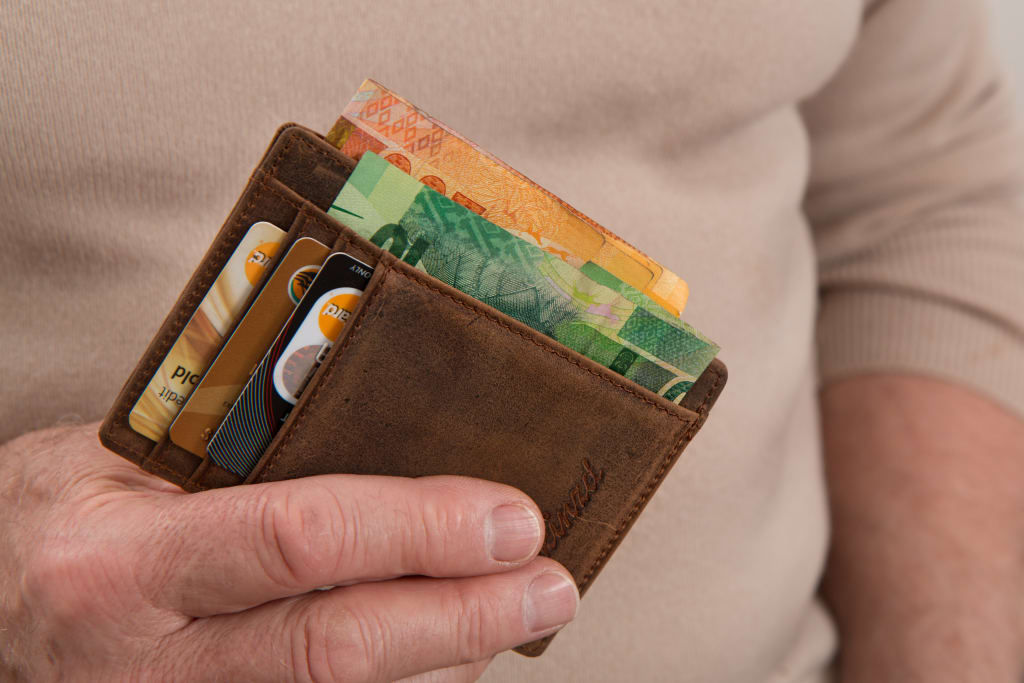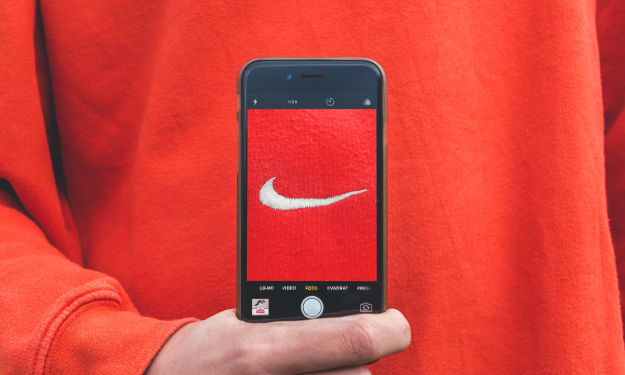This Smart Man Pocketed 6 Figures Income Just By Paying Credit Card Bills
He also walked away without paying a single penny in Tax.

Paying credit card bills can make you a millionaire. I know you won't believe me. But that is precisely what Konstantin Anikeev, a brilliant US physicist was able to achieve.
On February 23, 2021, the U.S. Tax Court issued a split decision on whether credit card 'cashback' rewards are taxable as gross income.
The case being discussed was "Konstantin Anikeev v. Commissioner, TC Memo 2021-23," wherein Konstantin Anikeev identified a loophole in the cashback offers of American Express credit cards and used a "unique idea" to earn $300,000 profit by paying his bills.
Anikeev's Master Plan
Konstantin started to earn from credit cards in 2009 as a hobby, and it soon turned into a "profession" that made him millions of dollars.
The physicist used a credit card to buy a large number of gift cards. He would then encash them and deposit the money into his bank account and pay the credit card bill. This payment earned him a reward from the credit card company, which were his earning.
To understand this better, here's how Anikeev's plan worked in five simple steps:
Gift Card Purchase: He used his American Express (Amex) 5% 'cash back' Rewards Program to purchase Visa gift cards at grocery stores or pharmacies where the 5% Rewards applied.
Gift Cards converted to Money Orders: Although you can't convert Visa cards to cash, you can use them to purchase Money Orders. And, Anikeev did precisely that. He would buy Money Orders with the Visa gift cards.
Depositing Money Orders to Bank Account: Anikeev deposited the Money Orders to his Bank Account.
Paying Card Balance: With the money back into his bank account, Anikeev wrote checks from his account to pay off the reduced Amex Card Balance. Alternatively, Anikeev used Money Orders to purchase MoneyGrams to pay off the Amex balance.
Repeat: Anikeev kept rolling money using this strategy to the tune of $6.4MM in purchases and $320,000 in 'profits.'
Let's understand his strategy with an example.
Cashback perks are standard rewards among today's credit card selections. While the typical card offers 1.5% cashback, other cards are offering 5% cashback awards.
The Amex card Anikeev was using offered an unlimited 5% cashback to purchase $500 gift cards. Anikeev used to buy $10,000 worth of gift cards and would get $500 cashback.
There are service charges for the Visa Gift Card (e.g., 1%). Net of the 1% service fee charged, the $9,900 value on the Gift Card buys $9,900 in Money Orders. Further, with a 0.33% service fee on Money Orders, you will have $9,867 to deposit to your Bank account. Assuming no Bank deposit fees, the result is a $500 cash back reward minus a $133 fee— a $367profit.
Alternatively, you can use the $9,900 value on the Gift Card to purchase a MoneyGram, and net of the MoneyGram 0.33% fee; you will have $9,867 to send to Amex to pay off the reduced balance resulting in a $367 profit.
By repeating this strategy, Anikeev made a total purchase of $6.4 million, which earned $320,000.
The case came to light when someone noticed Konstantin's income rise exponentially and reported it to the US Tax department. The IRS carried out an investigation and referred the case to the Court. The US Internal Revenue Service (IRS) claimed that Anikeev owed nearly $104,000 in income taxes on his earnings.
The Outcome of this Curious Case
In the Court, IRS argued that this was ordinary income, but the Tax Court held that it wasn't. The Rewards Program was a purchase-price discount, which the Court said was never considered a normal income.
But the Court also opened the door for IRS to argue that the Visa Gift Card could be viewed as an asset with a basis equal to its cost. Though the face amount is $10,000, under Internal Revenue Code (IRC) section 1012, its price would be $9,500—so when you exchanged it for a $9,900 Money Order, there is gain ($400)—and realized income is taxable.
However, Anikeev's Court noted that adjustments to the purchase prices of goods or services have always been considered non-taxable. The Court also observed that the Treasury Department's own Revenue Ruling held that the receipt of a rebate by a retail customer does not result in the receipt of gross income. Instead, the rebate was a reduction in the purchase price, requiring a downward adjustment to the basis of the automobile according to section 1012 of the IRC.
The Court also noted the longstanding IRS policy that card rewards are not taxable. In an attempt to harmonize the IRS's 'longstanding policy' with the fact that Anikeev acquired economic benefits by manipulating the Rewards Program, the Court offered an alternative theory of taxation, namely that the Reward Dollars reduced Anikeev's bases in the Visa gift cards and generated proceeds when they converted the cards to money orders.
Thus, for now, those 'cash back' rewards, rebate programs, and purchase price adjustments are safe from taxation under ordinary income. But caution should be exercised when leveraging the arbitrage opportunity to generate gains, as that might land you in trouble.
Author's Note:
Spare a minute to hit a heart, if you like the story. It's free for you but priceless for me.
If you want to support me, you can join Vocal with my affiliate link (given below) and that would help support my writing.
https://vocal.media/vocal-plus?via=Kavish
Affiliate Disclosure: This is an affiliate link for Vocal. If you join Vocal using the link, I would get a small percentage of income to support my writing but, this will not come at any additional cost to you.
References : www.currentfederaltaxdevelopments.com
About the Creator
Kavi Kamat
A banker by profession and a writer by passion. My life has always been full of ups & down, a treasure which helps me to pen down my memories. Technology and self-help are my drivers and reading is my hobby.
Thanks for your time.






Comments
There are no comments for this story
Be the first to respond and start the conversation.